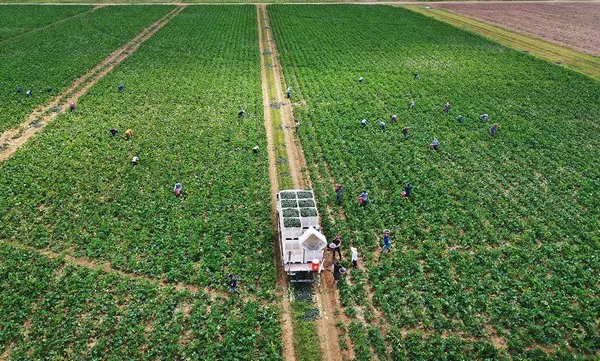Sunny Verghese, CEO of Olam Agri, a prominent global agricultural trading firm based in Singapore, issued a stark warning at the recent Redburn Atlantic and Rothschild consumer conference. He highlighted that escalating geopolitical tensions and the ravages of climate change are steering the world towards what he termed “food wars.”
Verghese drew parallels to historical conflicts over oil, predicting that future conflicts would center around food and water scarcity. He pointed out that government-imposed trade barriers, aimed at safeguarding domestic food supplies, have aggravated food inflation globally.
Following record profits in 2022 driven by disruptions caused by Russia’s invasion of Ukraine, Verghese countered accusations against traders for inflating food prices, arguing instead that governmental interventions and non-tariff trade barriers have skewed demand-supply dynamics. He noted that countries like India and China are hoarding strategic commodities, exacerbating global shortages and driving prices higher.
The onset of COVID-19 initially spurred food price hikes, which were further intensified by supply disruptions from the Ukraine conflict. Verghese stressed that protectionist measures, such as export bans on palm oil in Indonesia and restrictions on rice exports in India, have compounded global food insecurity and escalated consumer living costs.
Verghese criticized such protectionist policies as counterproductive, emphasizing the need for global cooperation amidst climate change-induced agricultural challenges. Olam Agri, a key player in global grain and oilseed markets, has faced a challenging year, marked by regulatory scrutiny and financial setbacks.
Despite setbacks, including a profit decline attributed to high interest rates and operational challenges in almond orchards, Olam Group remains pivotal in the food and agribusiness sector, supplying major brands worldwide.
Verghese concluded by urging industry leaders to prioritize climate action, proposing carbon taxation as a critical step to mitigate environmental impact. As climate change continues to threaten global food production, his call for proactive measures resonated with conference attendees, underscoring the urgency of addressing these interconnected challenges.
Olam Group’s plans to list Olam Agri in Saudi Arabia, originally slated for earlier realization, continue to face delays amidst ongoing strategic adjustments within the company since its separation from the food ingredients segment.
In summary, Verghese’s admonition serves as a poignant reminder of the interconnectedness of geopolitical tensions, climate change impacts, and food security challenges, urging global stakeholders to take decisive action before these issues escalate further.
Related Topics:



























